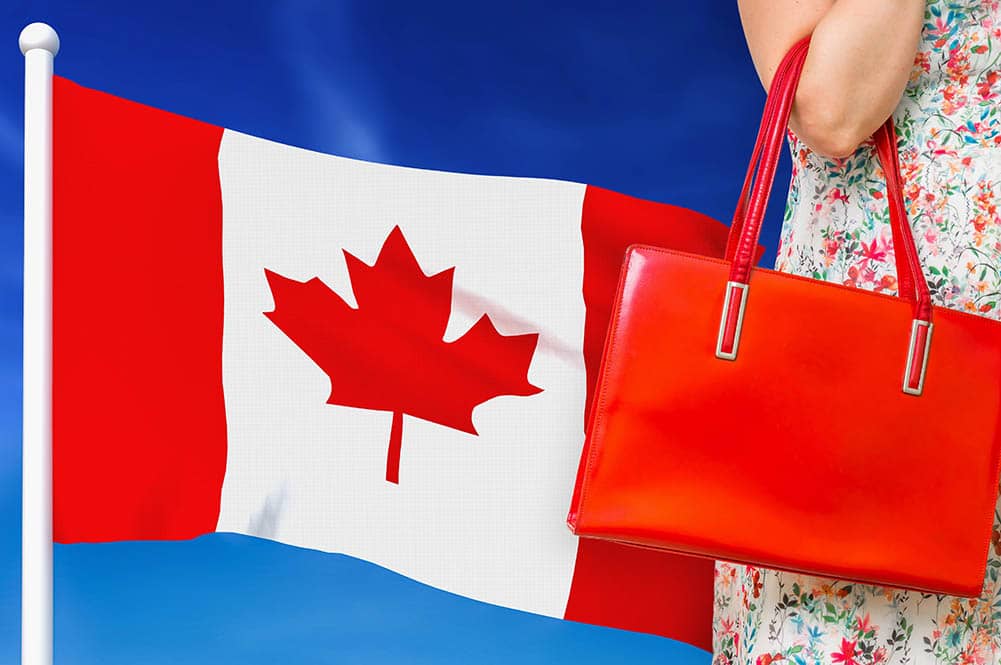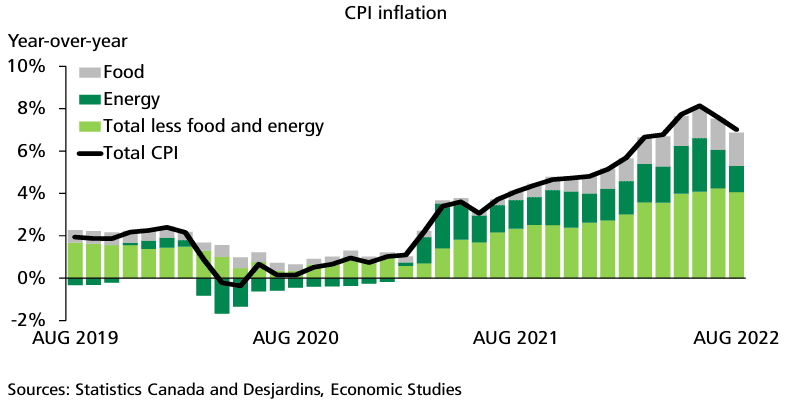Canadian Dollar Sinks on Inflation Miss that Puts Bank of Canada Closer to the Finish Line
- Written by: Gary Howes
- Canadian inflation down across all measures
- Heralds end to Bank of Canada's hiking cycle
- But deprives CAD of support via rates channel

Image © Adobe Stock
The Canadian Dollar fell in the wake of domestic inflation data showing prices rose less than expected in August, underscoring a view the Bank of Canada will be amongst the first major central banks to complete its hiking cycle.
The Canadian Dollar fell against the majority of its major peers on Tuesday after headline CPI inflation read at -0.3% month-on-month in August, underwhelming against the market's expectation for -0.1% and July's positive outcome of 0.1%.
In the year to August CPI inflation rose 7.0%, which is less than the 7.3% the market was expecting and less than July's 7.6%.
Core inflation - which strips out food and energy costs - was unchanged on the month, cooling from a more pronounced 0.5% in July.
All the Bank of Canada's favoured measures of inflation showed deceleration: Common CPI was down to 5.7% from 6.0%, median was down to 4.8% from 4.9% and trimmed was down to 5.2% from 5.4%.
"We think it’s way too early for the Bank to claim, 'Mission Accomplished'. But with interest rate‑sensitive sectors of the economy slowing rapidly and employment having contracted for the past few months, a sustained deceleration in price growth could prompt the Bank of Canada to take a prolonged pause after the October announcement," says Randall Bartlett, Senior Director of Canadian Economics at Desjardins Bank.
"While overall inflation remains well above the Bank of Canada's target, meaning that more rate hikes are likely in the cards, a clearer gap appears to be opening up between Canadian and U.S. inflation trends which should bring a lower peak from the Bank of Canada than the Federal Reserve," says Andrew Grantham, an economist at CIBC Bank.
The divergence in expectations was reflected in a sizeable 0.75% advance in the U.S. Dollar-Canadian Dollar exchange rate to 1.3345.
The Pound to Canadian Dollar exchange rate was meanwhile higher by 0.40% at 1.5213, taking money transfer rates on bank accounts to approximately 1.4787 and rates at specialist payment providers to 1.5167.
The inflation data reinforces growing expectations the Bank of Canada is nearing the end of its rate hiking cycle, which in turn implies Canadian bond yields face limited upside.
This would potentially deny the Canadian Dollar - one of 2022's high flyers - support via the rates channel going forward.
"Bond yields fell immediately after the release, but had started to undo some of that move later in the morning. The Canadian dollar, however, weakened against its U.S. counterpart with that trend continuing even as yields started to stabilise, as investors reassess expectations for where the peak in interest rates will be in Canada relative to the U.S.," says Grantham.
Compare GBP to CAD Exchange Rates
Find out how much you could save on your pound to Canadian dollar transfer
Potential saving vs high street banks:
C$4,450.00
Free • No obligation • Takes 2 minutes
Looking at the details, Canadian food prices rose to 9.8% above a year ago, taking it to the highest in over four decades.
But the drag of energy prices was the major mover in the inflation basket thanks to a 6.5% fall in the month to August.
Looking ahead, economist Claire Fan at RBC Bank says flattening demand - according to RBC's own tracking of card spending - looks likely to further limit the pace of price growth for physical merchandise going forward.
"Growth for services prices in the meantime, especially those that are leisure and travel related is expected to remain higher for longer, supporting strength in core inflation which we don’t project to peak until later in Q4 this year," she says.
RBC look for a further 75 basis points of hikes over the remainder of 2022, which is far less than what is expected from the likes of the Fed (190bp), Bank of England (194bp) and the European Central Bank (130bp).
In fact, only the Bank of Japan is expected to deliver less than the BoC going forward.
"Further hikes are coming, but likely at a slower pace," says James Knightley, Chief International Economist at ING.
A combination of falling oil prices, troubled global equity markets and the impending completion of the rate hike cycle at the Bank of Canada could provide potential headwinds for the Canadian Dollar over coming weeks.
Compare GBP to CAD Exchange Rates
Find out how much you could save on your pound to Canadian dollar transfer
Potential saving vs high street banks:
C$4,450.00
Free • No obligation • Takes 2 minutes





